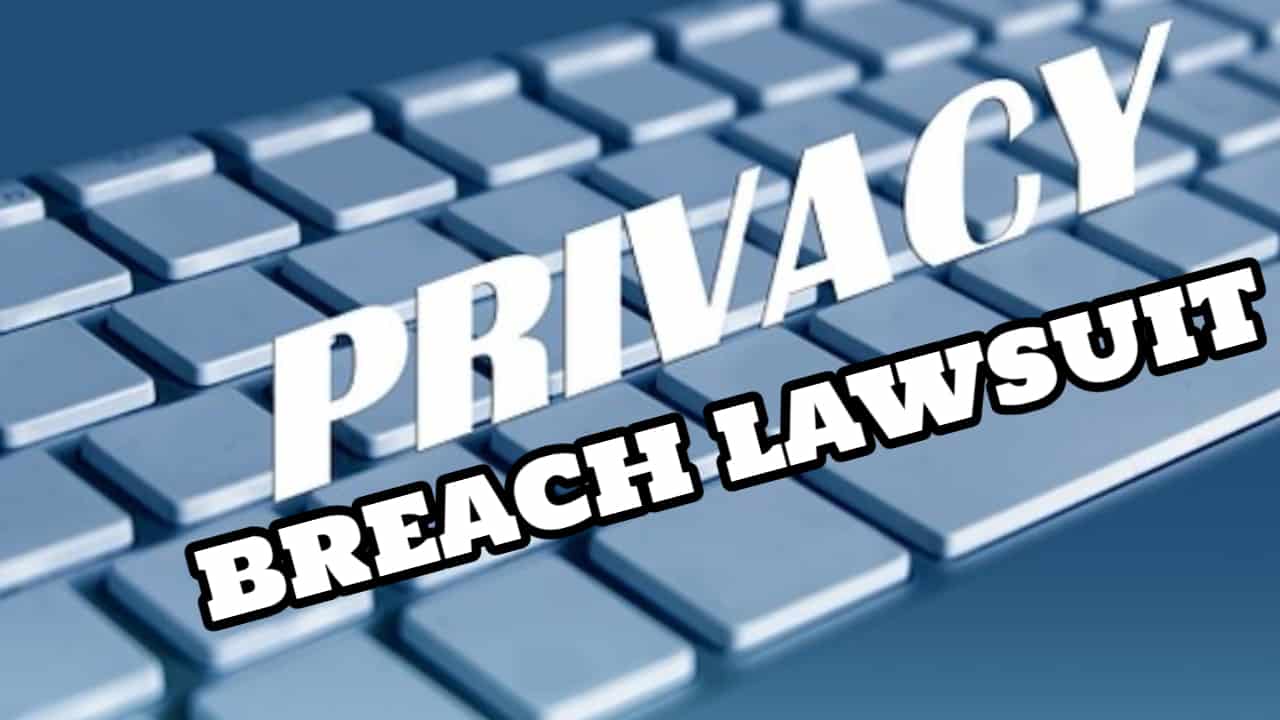 Privacy breach lawsuit: Introduction
Privacy breach lawsuit: Introduction
A licensed insolvency trustee (formerly known as a bankruptcy trustee) and a Court appointed Receiver are both officers of the Court. As such, they have a duty of care to all stakeholders and parties. A decision of the Supreme Court of British Columbia released in late 2018 deals with an application to begin a class action privacy breach lawsuit against a licensed insolvency trustee (LIT or Trustee).
The case I am referring to is Netlink Computer System Inc. (re),2018 BCSC2309. Netlink Computer System Inc. (Netlink) was a British Columbia-based business that marketed computers and associated software solutions. In late 2017, Netlink went bankrupt.
Privacy breach lawsuit: The request to go ahead
As is required under the Bankruptcy and Insolvency Act (Canada) (BIA), any party wishing to initiate litigation against a bankruptcy trustee must first get the permission of the Court to do so.
In the Netlink case, a former Netlink customer wanted to start a class action lawsuit against the Trustee. The customer claimed that the Trustee breached the personal privacy of Netlink’s customers by permitting their personal details to be revealed. The unproven claim was that the Trustee sold to or, otherwise, allowed 3rd parties to get personal information of the Netlink customers.
This particular customer wished to start an action versus the Trustee for breach of privacy. If leave is approved, this customer would then seek certification of his case as a class action lawsuit.
Privacy breach lawsuit: The issue in requesting the leave of the Court
The Court’s task was to figure out whether to exercise its discretion to allow the claim to go ahead. The Court had to look at the nature and scope of the proposed claim taking into account the evidence. Leave is rarely given. If leave was granted in this case, it would be the first time in Canada a bankruptcy Trustee has been taken legal action against in a potential class action proceeding.
The BIA does not give any type of specific advice about the elements the Court ought to take into consideration in thinking about an application for leave to start an action against a LIT. These have just been developed through case-law analyzing and using s. 215 of the BIA.
For almost 150 years, Courts and legal scholars have been of the view that the bar for approving the commencement of litigation I versus a Court-appointed receiver or Trustee is not a high one. It is designed to protect the receiver or LIT against only frivolous or vexatious actions which have no basis.
The leading cases on the issue of leave to go ahead with litigation against either a Court-appointed receiver or LIT can be summarized as follows;
- Leave to take such legal action should not be given if the action is frivolous or vexatious. Manifestly unmeritorious claims need to not be allowed to continue
- Actions need to not be allowed to continue if the evidence submitted on behalf of the action, does not show a cause of action against the Trustee.
- The court is not required to make a final evaluation of the benefits of the claim prior to granting leave.
This threshold tries to strike the ideal balance between the security of bankruptcy trustees and Court appointed receivers from the interruption of an insolvency administration from unimportant or simply tactical suits and preserving to the maximum degree possible the legal rights of creditors and other stakeholders.
Privacy breach lawsuit: This Netlink application
In this privacy breach lawsuit case, the claimant states that his affidavit evidence provides proof reveals a real case against the Trustee. The Trustee says that the proposed claim and the evidence on its behalf does not satisfy the relatively reduced threshold called for to prove leave.
The claimant described in his materials, his potential claim. . He also discloses that he has already begun a claim against the auction company who sold the bankruptcy company’s assets, Netlink and Netlink’s landlord. (The action versus Netlink has remained stayed due to the fact that Netlink is in bankruptcy). The proposed claim against the LIT is exactly the same and consists of practically the same phrasing as the action already started. There is no separate accusation that the Trustee did anything different from the auctioneer, Netlink, or the landlord.
The proposed claimant’s main points were:
- He purchased a product from Netlink and provided personal information, including, his name, address and credit card details.
- The Trustee contracted with the auctioneer to sell the assets.
- During that process, the Trustee allowed customers’ private information, including addresses, credit card numbers, and various other sensitive information (the “Private Information”) to be exposed and offered to or otherwise acquired by 3rd parties, including criminals.
- The Trustee provided the auctioneer computers and Netlink servers and other records containing the Private Information.
- Criminals that obtained the Netlink servers offered the information to other criminals, consisting of cybercriminals and identity thieves.
- The trustee knew that customer details are often included in the property of such bankrupt’s estates and it took no steps to safeguard the information when taking guardianship of Netflix’s property.
- The Trustee’s choice to offer the Private Information, or at a minimum, the Netlink servers including the Private Information, was intended and deliberate and was made knowing that Netlink customers had not consented to their details being shared.
- Customers have suffered damages.
Privacy breach lawsuit: This evidence
The Court examined the claims and the evidence. Unfortunately, the claimant did not have first-hand knowledge of what the Trustee did or did not do. Rather, the claimant submitted two sworn affidavits of what he believed took place. The information contained in the two affidavits was derived mainly from blog posts and YouTube videos that the claimant believed to be true.
The Trustee submitted 2 sworn affidavits of the LIT responsible for the Netlink file. The Trustee’s evidence was mainly why the relatively low threshold for allowing a claim against a Trustee or Court appointed receiver were not met. It did not provide much information about what the Trustee actually did (or did not do).
The Court had no choice but to rule that the claimant’s evidence was mainly hearsay and not admissible. With no real evidence before the Court to support the accusations, the Court dismissed the application and leave to begin the action against the Trustee was denied.
Privacy breach lawsuit: My take
Based on my reading of this case, I believe the Trustee was very lucky that there was no real evidence against it. There is no information indicating what steps the Trustee took to make sure that all Private Information was protected prior to the assets being sold. It is imperative that privacy breaches do not take place. Once a Trustee or Court appointed receiver to take possession of assets that may contain private or sensitive information, steps must be taken to ensure that the information does not fall into the hands of 3rd parties who have no right to that information. It does not matter whether the information is stored on computer hard drives, in the cloud, or physically in books or on paper.
The claimant still has its action against the auctioneer and the landlord. My understanding is that the landlord is involved because once the auction sale was completed and the auctioneer left the premises, there were still books, records and papers that contained some or all the Private Information. The landlord disposed of such papers in a way that did not protect the Private Information.
My Firm’s standard practice is to remove hard drives that contain Private Information so that computers would be sold minus a hard drive. With respect to physical records, any documents not required that would contain Private Information, we have shredded. We do not just throw it into a dumpster intact for someone to find. These are minimum steps required to protect Private Information.
Unfortunately, in the Netlink case, the Court’s Reasons for Decision does not include any information indicating the Trustee took such steps.
Privacy breach lawsuit: What does it all mean?
What it all means is that in any insolvency assignment, the LIT needs to know what it is he or she has taken possession and control of. Decisions must be made that protect the interests of all stakeholders, as best possible. There are always competing interests. The LIT must balance them all carefully when making decisions.
Do you have too much debt because you are a victim of identity theft? Does your company have too much debt and is in danger of shutting down? Is the pain and stress of too much debt now negatively affecting your health?
If so, contact the Ira Smith Team today. We have decades and generations of helping people and companies in need of financial restructuring and counselling. As a licensed insolvency trustee (formerly known as a bankruptcy trustee), we are the only professionals licensed and supervised by the Federal government to provide debt settlement and financial restructuring services.
We offer a free consultation to help you solve your problems. We understand your pain that debt causes. We can also end it right away from your life. This will allow you to begin a fresh start, Starting Over Starting Now. Call the Ira Smith Team today so that we can begin helping you and get you back into a healthy, stress-free life.

